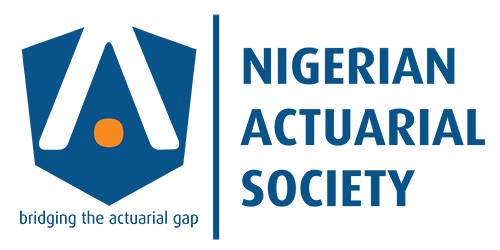The Scarcity of Actuarial Professionals in Nigeria: A Call to Action
The Nigerian financial landscape faces a critical challenge: a severe shortage of actuarial professionals. With only 28 qualified actuaries in a nation of over 200 million people, the capacity to effectively assess and manage financial risks across vital sectors like insurance, healthcare, and banking is significantly hampered. This scarcity poses a substantial threat to the stability and growth of these industries, as well as the broader economy. The Financial Reporting Council of Nigeria (FRC) and the Nigerian Actuarial Development Programme (NADP) have recognized the urgency of this situation and initiated a collaborative effort to address the deficit. Their recent awareness campaign at the University of Benin underscores the commitment to fostering the next generation of actuarial experts.
Actuarial science, a specialized discipline employing mathematical and statistical models to quantify and manage financial risks, plays a crucial role in safeguarding financial institutions and ensuring their long-term viability. Actuaries are essentially financial forecasters and risk mitigators, utilizing their expertise to predict potential financial losses and develop strategies to minimize their impact. They assess the probability of future events, such as accidents, natural disasters, or market fluctuations, and calculate the associated financial implications. This information is invaluable for insurance companies in determining premiums, managing reserves, and maintaining financial stability. Similarly, in the banking sector, actuaries contribute to risk assessment related to investments and other financial instruments. Their analytical skills are also vital in the healthcare industry for projecting healthcare costs and optimizing resource allocation.
The severe shortage of actuaries in Nigeria poses a significant impediment to the effective functioning of these critical industries. Without a sufficient pool of actuarial talent, insurance companies may struggle to accurately price policies, potentially leading to inadequate reserves and financial instability. Banks may face difficulties in managing investment risks, exposing them to potential losses. The healthcare sector, similarly, may struggle with accurate cost projections, hindering efficient resource allocation and planning. Ultimately, the lack of actuarial expertise can undermine the confidence and stability of the entire financial system.
The FRC and NADP are actively striving to address this critical shortage through a multi-pronged approach. They are spearheading initiatives to raise awareness about the actuarial profession among university students, highlighting the career opportunities and societal impact of this field. They are also providing financial support to aspiring actuaries, covering tuition and examination fees to ease the financial burden of pursuing this demanding profession. Moreover, they are investing in capacity-building programs for existing practitioners, ensuring they stay abreast of the latest developments and best practices in the field.
The development and implementation of robust actuarial practice regulations are also crucial for fostering a strong and ethical actuarial profession in Nigeria. These regulations will provide a framework for professional conduct, ensuring high standards of practice and safeguarding the integrity of the profession. In addition, the creation of mobility and mortality tables specifically tailored to the Nigerian context is essential for accurate risk assessment and informed decision-making within the insurance and healthcare sectors. These tables provide essential data on life expectancy and mortality rates, enabling actuaries to make more precise calculations and predictions.
The advocacy campaign by FRC and NADP emphasizes the pivotal role universities play in nurturing the next generation of actuarial professionals. Out of over 223 universities in Nigeria, only eight offer actuarial science programs, underscoring the need for greater investment in actuarial education. Expanding the number of universities offering these programs is critical to increasing the pipeline of qualified actuaries. Moreover, promoting the actuarial profession among accounting students, a group with relevant mathematical and analytical skills, can further widen the talent pool. Currently, none of the 50,000 accountants in Nigeria are qualified actuaries, representing a significant untapped resource.
Addressing the scarcity of actuarial professionals in Nigeria requires a sustained and collaborative effort involving government agencies, educational institutions, and the private sector. The FRC and NADP have taken crucial first steps in raising awareness and providing financial support. However, more needs to be done to ensure the long-term sustainability of the profession. Increased investment in actuarial education, the development of robust regulations, and ongoing professional development programs are essential for cultivating a vibrant and thriving actuarial community. By developing robust actuarial practice regulations and mobility and mortality tables tailored to the Nigerian context, they can lay the foundation for a strong and ethical profession.
The future of Nigeria’s financial stability depends on the availability of qualified actuarial professionals. By investing, building capacity among current and aspiring actuaries and creating regulations the FRC and NADP are not only addressing a critical skills gap but also contributing to the long-term economic growth and prosperity of the nation. The journey towards achieving actuarial excellence in Nigeria requires a collective effort, and the initiatives undertaken by the FRC and NADP serve as a crucial catalyst for this transformative process. The goal is to ensure that Nigeria has a robust and thriving actuarial community capable of supporting the complex needs of its financial and healthcare systems. This will require continuous efforts to attract, train, and retain talented individuals in the field.


